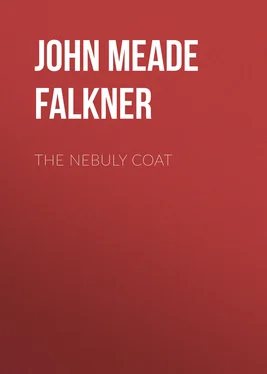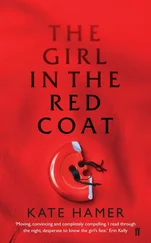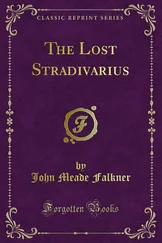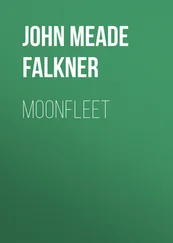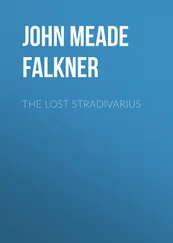John Meade Falkner - The Nebuly Coat
Здесь есть возможность читать онлайн «John Meade Falkner - The Nebuly Coat» — ознакомительный отрывок электронной книги совершенно бесплатно, а после прочтения отрывка купить полную версию. В некоторых случаях можно слушать аудио, скачать через торрент в формате fb2 и присутствует краткое содержание. Жанр: foreign_antique, foreign_home, architecture_book, на английском языке. Описание произведения, (предисловие) а так же отзывы посетителей доступны на портале библиотеки ЛибКат.
- Название:The Nebuly Coat
- Автор:
- Жанр:
- Год:неизвестен
- ISBN:нет данных
- Рейтинг книги:3 / 5. Голосов: 1
-
Избранное:Добавить в избранное
- Отзывы:
-
Ваша оценка:
- 60
- 1
- 2
- 3
- 4
- 5
The Nebuly Coat: краткое содержание, описание и аннотация
Предлагаем к чтению аннотацию, описание, краткое содержание или предисловие (зависит от того, что написал сам автор книги «The Nebuly Coat»). Если вы не нашли необходимую информацию о книге — напишите в комментариях, мы постараемся отыскать её.
The Nebuly Coat — читать онлайн ознакомительный отрывок
Ниже представлен текст книги, разбитый по страницам. Система сохранения места последней прочитанной страницы, позволяет с удобством читать онлайн бесплатно книгу «The Nebuly Coat», без необходимости каждый раз заново искать на чём Вы остановились. Поставьте закладку, и сможете в любой момент перейти на страницу, на которой закончили чтение.
Интервал:
Закладка:
“I knew well enough who’d bought ’em, but didn’t want to give her name for fear of grieving Farmer Joliffe more nor he was grieved already, so said nothing, but held my peace.
“Then the farmer says: ‘Tom, I believe ’ee; I’ve know’d ’ee thirty year, and never know’d ’ee tell a lie, and I believe ’ee now. But if thou knows her name, tell it us, and if thou doesn’t know, tell us what she looked like, and maybe some of us ’ll guess her.’
“But still I didn’t say aught till Master Martin goes on:
“‘Out with her name. He must know her name right enough, if there ever was a woman as did buy the hosses; and don’t you be so soft, father, as to trust such fool’s tales. We’ll get a constable for ’ee. Out with her name, I say.’
“Then I was nettled like, at his speaking so rough, when the man that suffered had forgiven me, and said:
“‘Yes, I know her name right enough, if ’ee will have it. ’Twas the missis.’
“‘Missis?’ he says; ‘what missis?’
“‘Your mother,’ says I. ‘She was with a man, but he weren’t the man she runned away from here with, and she made he buy the team.’
“Master Martin didn’t say any more, and Miss Phemie went on crying; but there was a blanker look come on old master’s face, and he said very quiet:
“‘There, that’ll do, lad. I believe ’ee, and forgive thee. Don’t matter much to I now if I have lost a hundred pound. ’Tis only my luck, and if ’tweren’t lost there, ’twould just as like be lost somewhere else. Go in and wash thyself, and get summat to eat; and if I forgive ’ee this time, don’t ’ee ever touch the drink again.’
“‘Master,’ I says, ‘I thank ’ee, and if I ever get a bit o’ money I’ll pay thee back what I can; and there’s my sacred word I’ll never touch the drink again.’
“I held him out my hand, and he took it, for all ’twas so dirty.
“‘That’s right, lad; and to-morrow we’ll put the p’leece on to trace them fellows down.’
“I kep’ my promise, Mr—Mr—Mr—”
“Westray,” the architect suggested.
“I didn’t know your name, you see, because Rector never introduced me yesterday. I kep’ my promise, Mr Westray, and bin teetotal ever since; but he never put the p’leece on the track, for he was took with a stroke next morning early, and died a fortnight later. They laid him up to Wydcombe nigh his father and his grandfather, what have green rails round their graves; and give his yellow breeches and blue waistcoat to Timothy Foord the shepherd, and he wore them o’ Sundays for many a year after that. I left farming the same day as old master was put underground, and come into Cullerne, and took odd jobs till the sexton fell sick, and then I helped dig graves; and when he died they made I sexton, and that were forty years ago come Whitsun.”
“Did Martin Joliffe keep on the farm after his father’s death?” Westray asked, after an interval of silence.
They had wandered along the length of the stalls as they talked, and were passing through the stone screen which divides the minster into two parts. The floor of the choir at Cullerne is higher by some feet than that of the rest of the church, and when they stood on the steps which led down into the nave, the great length of the transepts opened before them on either side. The end of the north transept, on the outside of which once stood the chapter-house and dormitories of the monastery, has only three small lancet-windows high up in the wall, but at the south end of the cross-piece there is no wall at all, for the whole space is occupied by Abbot Vinnicomb’s window, with its double transoms and infinite subdivisions of tracery. Thus is produced a curious contrast, for, while the light in the rest of the church is subdued to sadness by the smallness of the windows, and while the north transept is the most sombre part of all the building, the south transept, or Blandamer aisle, is constantly in clear daylight. Moreover, while the nave is of the Norman style, and the transepts and choir of the Early English, this window is of the latest Perpendicular, complicated in its scheme, and meretricious in the elaboration of its detail. The difference is so great as to force itself upon the attention even of those entirely unacquainted with architecture, and it has naturally more significance for the professional eye. Westray stood a moment on the steps as he repeated his question:
“Did Martin keep on the farm?”
“Ay, he kep’ it on, but he never had his heart in it. Miss Phemie did the work, and would have been a better farmer than her father, if Martin had let her be; but he spent a penny for every ha’penny she made, till all came to the hammer. Oxford puffed him up, and there was no one to check him; so he must needs be a gentleman, and give himself all kinds of airs, till people called him ‘Gentleman Joliffe,’ and later on ‘Old Neb’ly’ when his mind was weaker. ’Twas that turned his brain,” said the sexton, pointing to the great window; “’twas the silver and green what done it.”
Westray looked up, and in the head of the centre light saw the nebuly coat shining among the darker painted glass with a luminosity which was even more striking in daylight than in the dusk of the previous evening.
Chapter Five
After a week’s trial, Westray made up his mind that Miss Joliffe’s lodgings would suit him. It was true that the Hand of God was somewhat distant from the church, but, then, it stood higher than the rest of the town, and the architect’s fads were not confined to matters of eating and drinking, but attached exaggerated importance to bracing air and the avoidance of low-lying situations. He was pleased also by the scrupulous cleanliness pervading the place, and by Miss Joliffe’s cooking, which a long experience had brought to some perfection, so far as plain dishes were concerned.
He found that no servant was kept, and that Miss Joliffe never allowed her niece to wait at table, so long as she herself was in the house. This occasioned him some little inconvenience, for his naturally considerate disposition made him careful of overtaxing a landlady no longer young. He rang his bell with reluctance, and when he did so, often went out on to the landing and shouted directions down the well-staircase, in the hopes of sparing any unnecessary climbing of the great nights of stone steps. This consideration was not lost upon Miss Joliffe, and Westray was flattered by an evident anxiety which she displayed to retain him as a lodger.
It was, then, with a proper appreciation of the favour which he was conferring, that he summoned her one evening near teatime, to communicate to her his intention of remaining at Bellevue Lodge. As an outward and visible sign of more permanent tenure, he decided to ask for the removal of some of those articles which did not meet his taste, and especially of the great flower-picture that hung over the sideboard.
Miss Joliffe was sitting in what she called her study. It was a little apartment at the back of the house (once the still-room of the old inn), to which she retreated when any financial problem had to be grappled. Such problems had presented themselves with unpleasant frequency for many years past, and now her brother’s long illness and death brought about something like a crisis in the weary struggle to make two and two into five. She had spared him no luxury that illness is supposed to justify, nor was Martin himself a man to be over-scrupulous in such matters. Bedroom fires, beef-tea, champagne, the thousand and one little matters which scarcely come within the cognisance of the rich, but tax so heavily the devotion of the poor, had all left their mark on the score. That such items should figure in her domestic accounts, seemed to Miss Joliffe so great a violation of the rules which govern prudent housekeeping, that all the urgency of the situation was needed to free her conscience from the guilt of extravagance—from that luxuria or wantonness, which leads the van among the seven deadly sins.
Читать дальшеИнтервал:
Закладка:
Похожие книги на «The Nebuly Coat»
Представляем Вашему вниманию похожие книги на «The Nebuly Coat» списком для выбора. Мы отобрали схожую по названию и смыслу литературу в надежде предоставить читателям больше вариантов отыскать новые, интересные, ещё непрочитанные произведения.
Обсуждение, отзывы о книге «The Nebuly Coat» и просто собственные мнения читателей. Оставьте ваши комментарии, напишите, что Вы думаете о произведении, его смысле или главных героях. Укажите что конкретно понравилось, а что нет, и почему Вы так считаете.
